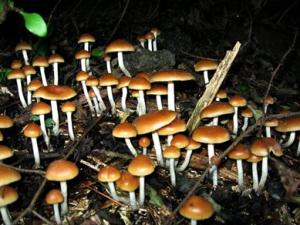A bill requiring warnings that medical marijuana users cannot own guns is moving in South Dakota, a pair of Alaska lawmakers file a psychedelic reform bill, and more.

DC City Council Approves Bill to Penalize Unlicensed Marijuana Gifting Shops. The city council on Tuesday unanimously approved emergency legislation giving city officials the power to penalize unlicensed marijuana gifting shops that have failed to apply to the city's medical marijuana program. The change will go into effect immediately once Mayor Muriel Bowser (D) signs it into law.
In 2022, faced with a glut of "gifting" stores where retailers "sell" items such as stickers or t-shirts and then "gift" their customers marijuana, the city moved to allow such shops to apply for medical marijuana licenses. But many have not done so, prompting the council to act.
Voters in the District legalized marijuana in 2014, but ever since then, Congress has blocked the District from implementing legal marijuana sales, leaving a space for the gifting shops.
Medical Marijuana
South Dakota House Committee Approves Bill Requiring Notice That Medical Marijuana Cardholders Cannot Legally Own Firearms. The House Judiciary Committee has approved House Bill 1024, which would "require that an application for a medical marijuana registry identification card include a notice and acknowledgement of federal law regarding firearms and the unlawful use of a controlled substance."
The committee also approved a companion bill, House Bill 1036, which would "require that a dispensary post notice of the federal law regarding possession of a firearm and the use of marijuana and to provide a civil penalty."
Gun safety and concealed pistol permit instructor Rep. Kevin Jensen (R) sponsored both bills.
"The bill (HB 1024) only requires an additional statement on the medical marijuana card about firearms," Jensen said. "It's just an acknowledgment. Then it is up to the consumer."
The two bills now head for a House floor vote.
Psychedelics
Alaska Bills Would Create Psychedelic Study Task Force. Companion bills have been filed in the House and Senate to create a state task force to study and make recommendations about psychedelic policy issues, including licensing for therapeutic practitioners and frameworks for legalization.
Sen. Forrest Dunbar (D) introduced Senate Bill 166 on Monday, while Rep. Jennie Armstrong (D) introduced House Bill 228.
The bills would establish an Alaska Mental Health and Psychedelic Medicine Task Force under the state Department of Commerce, Community, and Economic Development. The body would be comprised of government representatives and experts in mental health, psychiatry and more.
Members would be charged with assessing the potential therapeutic uses of psychedelics for mental health treatment, barriers to equitable access and "licensing and insurance requirements" for practitioners if any psychedelics receive federal approval by the Food and Drug Administration (FDA).
They would also need to "consider legal and regulatory pathways to the legalization of psychedelic medicines in the state, and the potential effects of the medicines on public health."
Ypsilanti, Michigan, Latest City to Enact Psychedelic Reforms. The city council voted Tuesday to effective decriminalize a number of psychedelic plants and fungi, including magic mushrooms. Other plants named include ayahuasca, ibogaine, and mescaline, as well as other plants and plant substances with hallucinogenic properties.
"By passing this policy today you will forever be remembered as stewards of consciousness, cognitive liberty and personal spiritual growth for all," said Larry Norris, a California resident and University of Michigan alumnus who cofounded the advocacy group Decriminalize Nature, during the Tuesday meeting.
Ypsilanti now joins Detroit, Ferndale, Hazel Park and Ann Arbor as Michigan cities that have backed such reforms. A number of localities in California and Massachusetts have also done so.
The council approves a resolution that prohibits the use of city funds or resources in investigating, detaining or prosecuting violations of law dealing with the plants. The Washtenaw County Prosecutor's Office already follows that practice.
This work by StoptheDrugWar.org is licensed under Creative Commons Attribution-ShareAlike 4.0 International
Add new comment